Extensive research shows that the Mediterranean diet is one of the most beneficial meal plans for health and longevity. In fact, a new 2024 study conducted by researchers at Brigham and Women’s Hospital followed 25,000 healthy American women over a period of 25 years and found that those who ate foods more aligned with the Mediterranean diet saw their all-cause mortality risk reduced by 23 percent.
The researchers noted that these longevity benefits could be attributed to lower cancer mortality and cardiovascular mortality—both of which are affected by one’s weight. Now, researchers are turning their attention to the direct weight loss benefits of following a Mediterranean diet, and how this might impact one’s broader health.
The golden rule of the Mediterranean diet is to center your meals on healthy, whole foods while limiting your intake of processed ingredients. This typically includes things like fish, nuts, seeds, legumes, fruits, veggies, and whole grains. “These come as nature made them, without extra added sugar, processed seed oils, chemicals, and additives,” says registered dietitian Kimberly Gomer, MS, RD, LD/N.
Though following this general strategy is likely to improve your health and the scale, certain star ingredients may have an outsized impact on your weight and well-being. By emphasizing foods rich in protein, fiber, antioxidants, and healthy fats while limiting saturated fats and excess salt and sugar, you can fast-track your path to health and reach your goal weight sooner. Read on for the eight best Mediterranean diet foods best for weight loss.
RELATED: 10 Best Prebiotic Foods for Weight Loss, According to Dietitians.
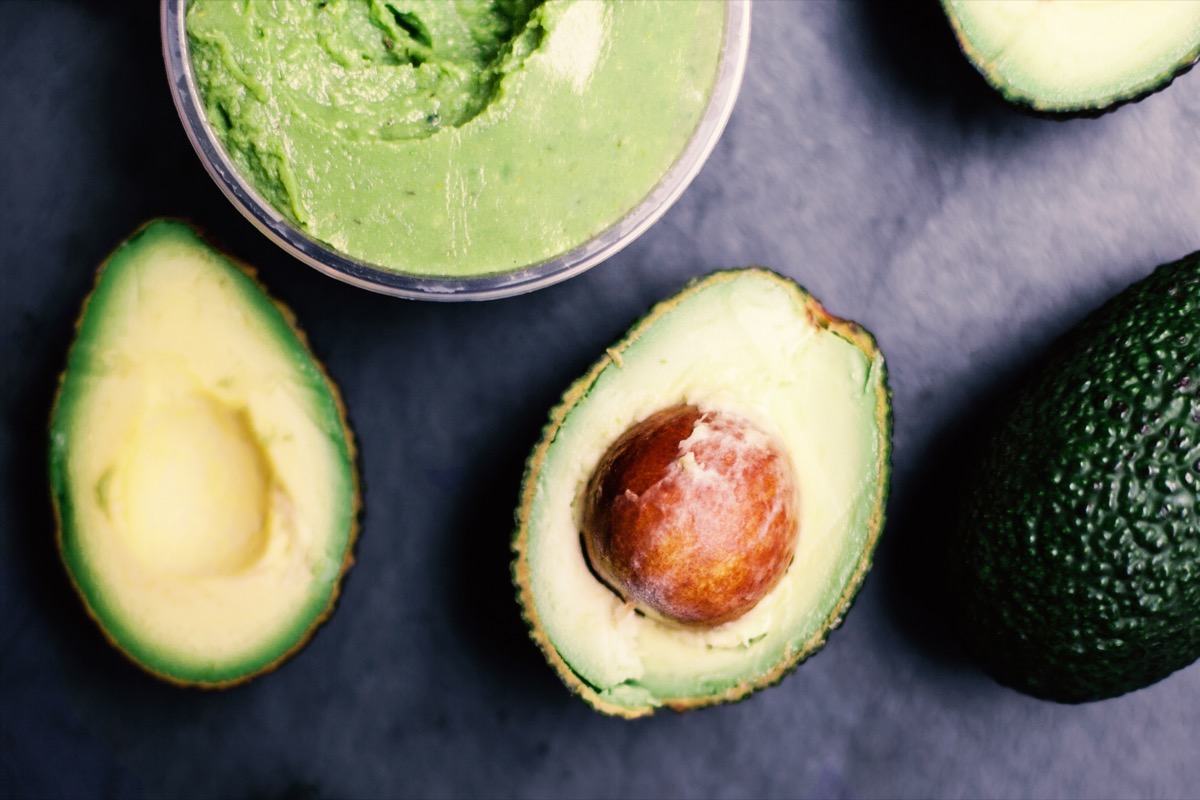
Noting their versatility, delicious flavor, and healthy nutritional profile, Gomer says avocados are one of her favorite food recommendations for weight loss clients.
“Some people fear avocados because of their high-fat content, but it is exactly that fat that is great for weight loss,” she tells Best Life. “The fat is Omega 3, which is not only anti-inflammatory, but it will help with satiety. Feeling satiated and satisfied after a meal is a key to successful weight loss. Another positive connection with fats and weight loss is that the fat does not produce an insulin spike. This keeps blood sugars steady, hunger at bay, and allows for easier fat burning.”
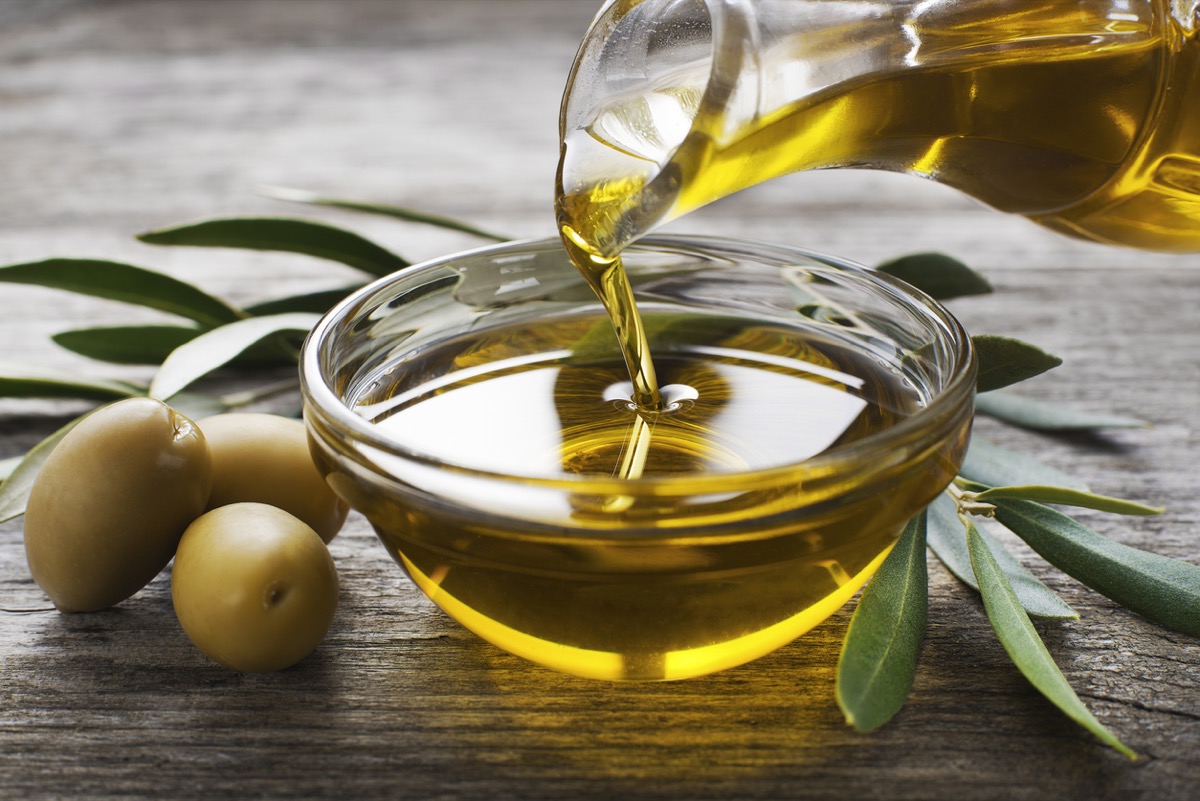
Olive oil is another Mediterranean staple that can be used for weight loss. Gomer notes that high-quality olive oil, including extra virgin olive oil (EVOO), is a superior choice to industrial vegetable seed oils, including soybean, corn, canola, and sunflower oils, which can be high in saturated fats.
Meanwhile, olive oil is rich in Omega-3 fatty acids, which can help curb cravings and help you feel satiated for longer after a meal.
RELATED: 5 Best Foods to Fight Inflammation, Doctors Say.
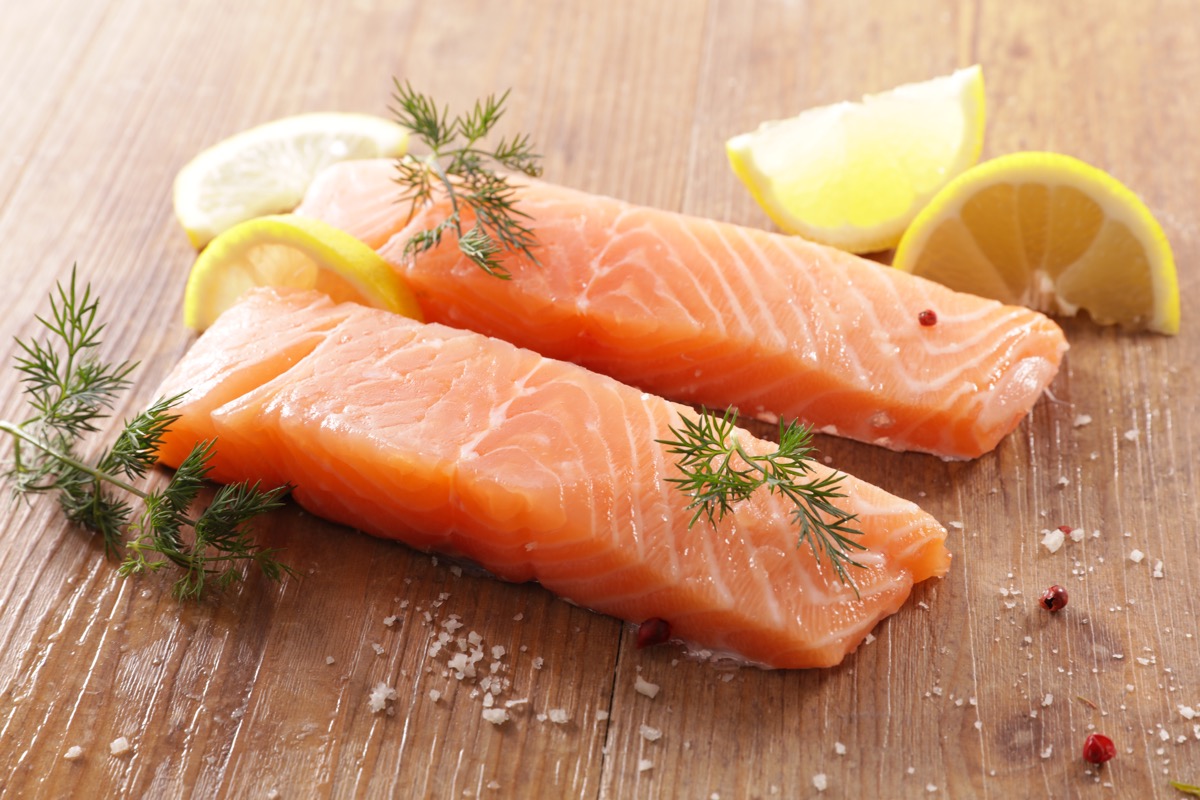
Experts say that consuming lean sources of protein that are low in calories and saturated fats can also help you lower your weight and improve your health. Fatty fish such as salmon have the added benefit of providing you with heart-healthy omega-3 fatty acids. Gomer says this is especially true of the “wild caught variety.”
“Two servings of seafood per week are recommended to meet nutrition needs, particularly omega-3 fatty acids and vitamin D,” agrees Kayla Farrell, RD, a dietitian and account executive at FRESH Communications. “As a registered dietitian, I recommend frozen salmon from Chile because it’s particularly high in omega-3 fatty acids, low in mercury, and considered a best choice for the whole family, including pregnant women and children.”
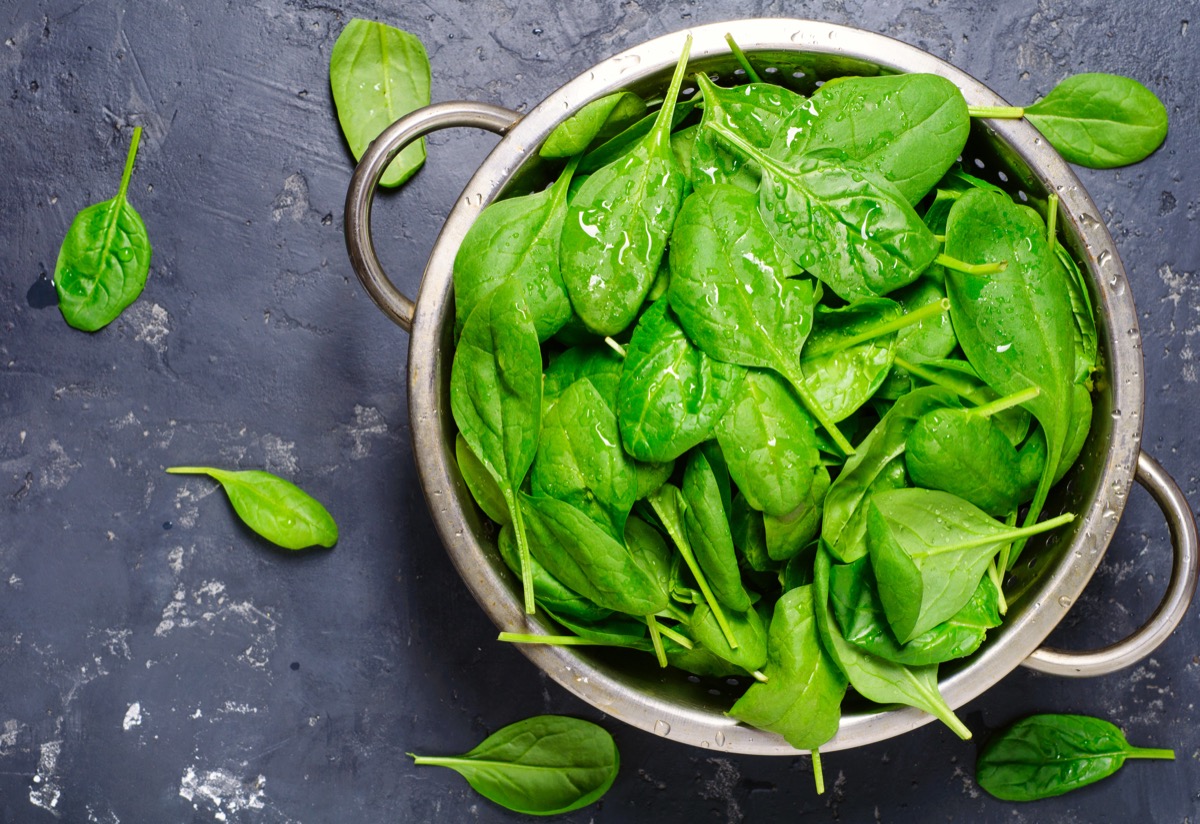
One way to ensure you reap maximum benefits from the Mediterranean diet is to re-think the proportions of your meal. Instead of centering your meal around meat, let a range of fresh vegetables steal the show.
“Eating a chopped salad of cucumbers, tomatoes, onions, peppers dressed with lemon and olive oil is a standard salad that is as delicious as [it is] nutritious. Roasting Brussels sprouts and eggplant are favorites of the region. These vegetables provide fiber, vitamins, and minerals which are complementary for weight loss as those provide satiety and nutrition at a meal. Think potassium, phosphorus, zinc, calcium, along with Vitamin C, K, B vitamins, A and E,” Gomer says.
Though it’s best to eat a wide range of veggies in a rainbow of colors, there’s one type of vegetable you should be sure to include whenever possible. Dark leafy greens such as spinach are uniquely nutrient-dense while remaining low in calories, explains Catherine Gervacio, RD, a registered dietitian and a certified exercise nutrition coach working with Living.Fit.
“The fiber in leafy greens can help you feel full and satisfied, reducing the chances of overeating. Also, the high water content in this leafy green contributes to hydration for overall health and weight management,” she tells Best Life.
RELATED: The 3 “Ultraprocessed” Foods You Must Avoid for a Longer Life, 30-Year Study Finds.
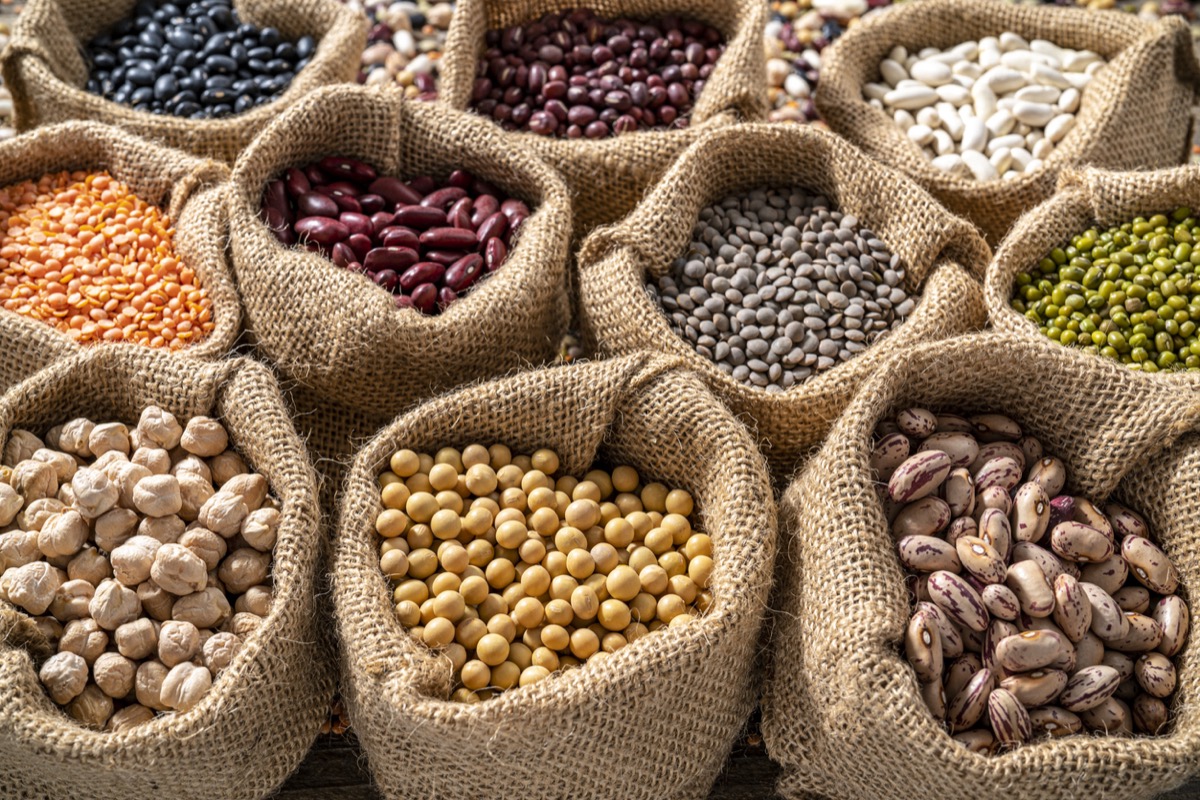
If you want to lose weight, protein and fiber are two of the best nutritional tools in your arsenal. Beans and legumes, two staples of the Mediterranean diet, can provide all you need. They also contain complex carbohydrates to help keep your energy levels up enough to sustain a workout routine.
Even if you don’t plan to go entirely plant-based, try substituting some beans, chickpeas, peas, or lentils for other protein sources that are higher in saturated fat or are more processed.
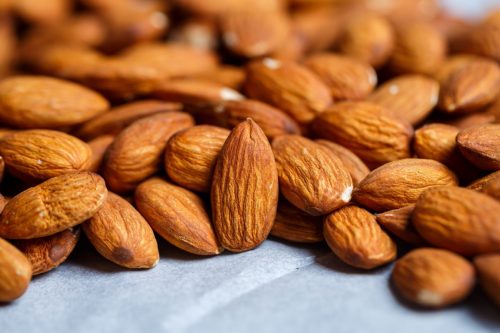
Nuts and seeds are also widely featured in the Mediterranean—and for good reason. “They are rich in healthy fats, protein, and fiber, making them a satisfying and nutrient-dense snack option,” says Gervacio.
The dietitian recommends eating almonds in particular, as they “can help regulate hunger hormones, keeping you full and reducing the urge to snack on unhealthy foods.”
Walnuts, macadamia nuts, chia seeds, and flaxseeds are also popular choices.
RELATED: 9 High-Fiber Foods for Weight Loss That Will Keep You Full and Satisfied.
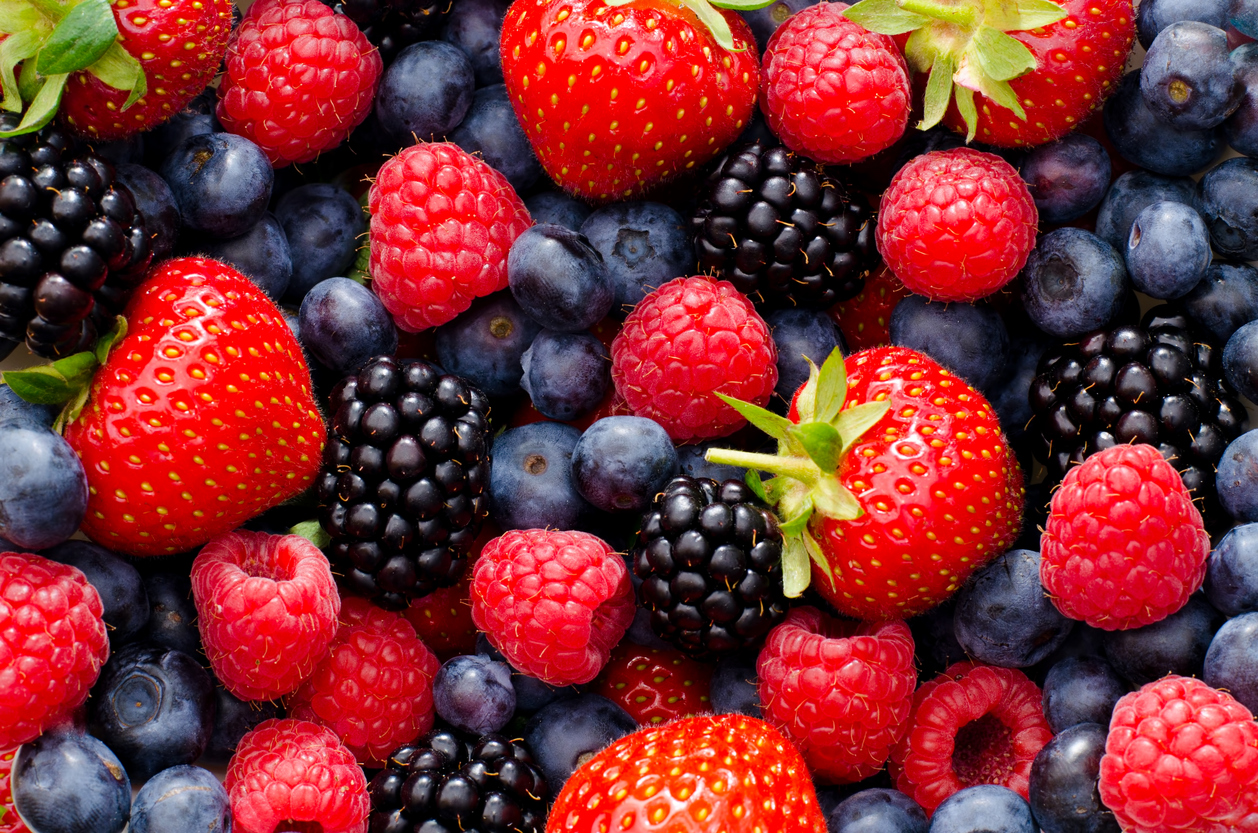
Antioxidant-rich berries are an excellent choice when you want to satisfy your sweet tooth without derailing your diet. These come packed with plenty of fiber and water, which will help you stay fuller for longer and curb cravings. They can also help reduce blood sugar spikes after eating, making it less likely that your body will store excess glucose—a common culprit behind weight gain.
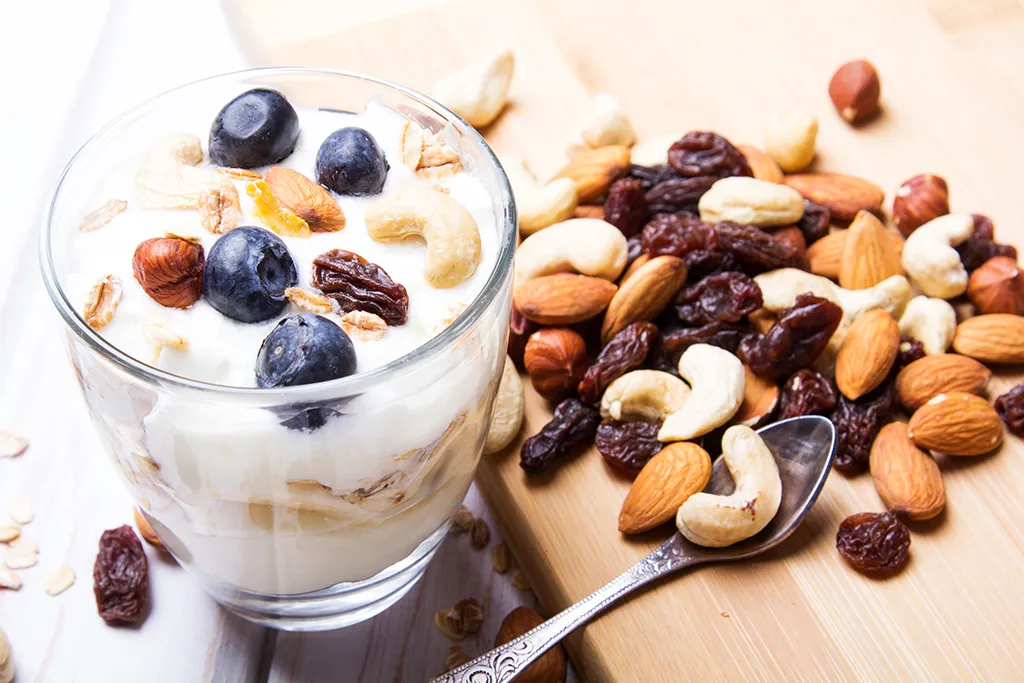
Finally, the experts recommend eating Greek yogurt for both its weight loss and gut health benefits.
“Greek yogurt contains probiotics to support a healthy gut. A healthy gut ensures good digestion and metabolism, helping in weight loss efforts. It is also lower in sugar compared to regular yogurt, making it a better choice for those looking to manage their sugar intake,” says Gervacio.
Top it off with nuts and berries for an added antioxidant boost!
